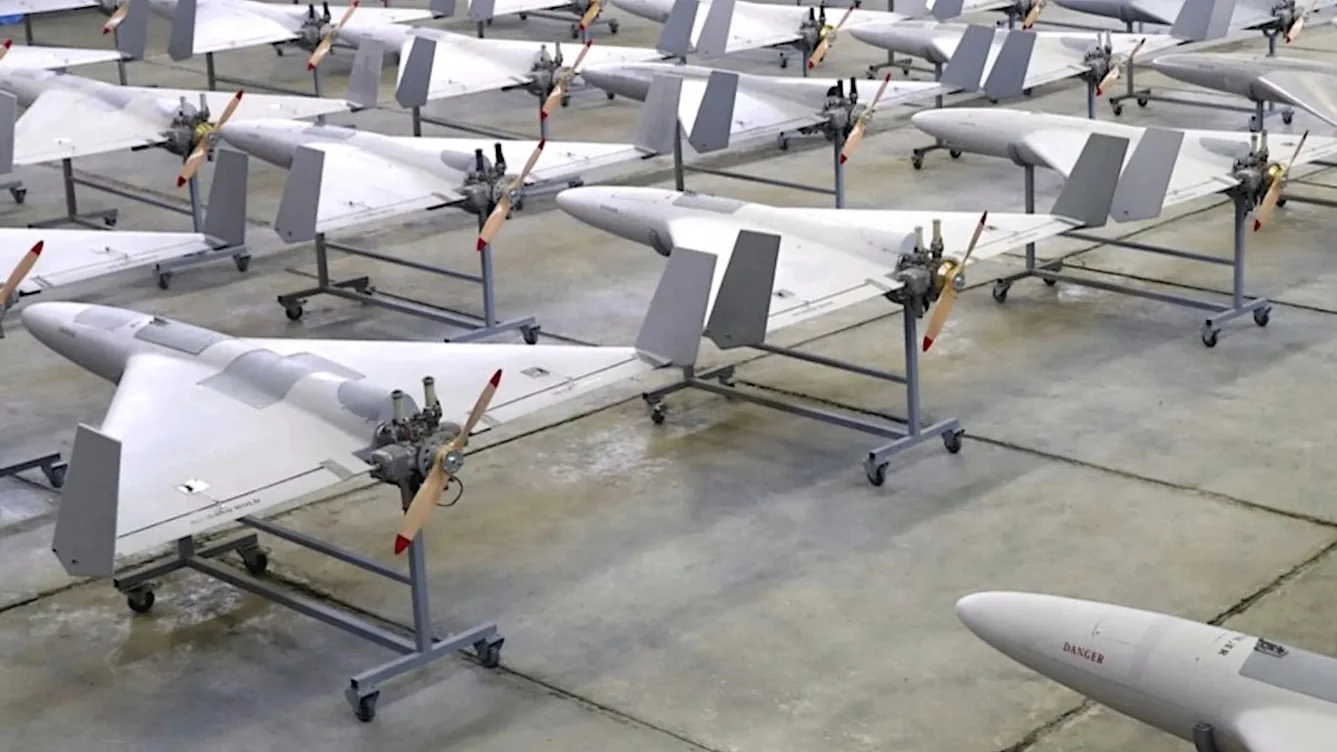
African Women Recruited for Jobs in Russia Deceived into Building Shahed-136 Drones for Ukraine War at Alabuga Factory
Fiona Nanna, ForeMedia News
7 minutes read. Updated 12:59PM GMT Fri, 11th October, 2024
The promise seemed irresistible: an all-expense-paid trip to Europe, a well-paying job, and an adventure in a foreign land. For many young African women, this seemed like the perfect opportunity to escape poverty and build a future. Social media ads targeted women aged 18-22 from Uganda, Rwanda, Kenya, South Sudan, Sierra Leone, and Nigeria, among other African countries, offering jobs in fields like hospitality and catering. All they had to do was pass a simple computer game and a 100-word Russian vocabulary test.
However, what awaited them on the steppes of Russia’s Tatarstan region was far from what they expected. Instead of landing roles in hospitality, many found themselves working in a factory assembling Iranian-designed Shahed drones, one-way attack UAVs used by Russia in its ongoing war with Ukraine. These drones, produced under a $1.7 billion deal between Russia and Iran, are crucial to Russia’s military operations, and the women were unknowingly thrust into this high-stakes production line.
The Harsh Reality: Labor Under Duress
Interviews with several women working in Tatarstan’s Alabuga Special Economic Zone revealed a grim picture of long hours, dangerous working conditions, and a pervasive atmosphere of control and surveillance. Promised decent wages and career-building experiences, the reality was far less glamorous. According to one woman interviewed, they were “trapped” in jobs that exposed them to hazardous chemicals, worked them to exhaustion, and paid far less than promised.
“I don’t know how to make drones. I never knew I’d end up in a factory building weapons,” said one African recruit who gave up her job at home in Uganda for what she thought would be a work-study program.
The factory, located 1,000 kilometers east of Moscow, employed about 200 African women, many of whom had no experience or background in weapons manufacturing. They worked alongside Russian vocational students, some as young as 16, and assembled thousands of drones destined for Ukraine’s battlefield.
In exchange for their labor, the women were given dormitory accommodation under constant surveillance, forbidden from leaving without permission. Dormitories were heavily guarded, and the women’s every movement inside the factory was monitored by facial recognition systems and surveillance cameras. Their phones, while provided with local SIM cards, were prohibited inside the factory, and communication with outsiders was closely monitored.
The Deceptive Recruitment: A Tragic Turn of Events
Recruitment efforts targeted not only African women but also young workers from Sri Lanka, Central Asia, and even Latin America. Russia’s desperate need for labor, exacerbated by the war, led to this expansive and, as many argue, exploitative recruitment campaign. The Kremlin’s workforce is stretched thin, with many Russian men either fighting in Ukraine or fleeing abroad, leaving a gaping hole in its military-industrial complex.
As a result, Russia turned to foreign labor, particularly women from countries where economic instability makes overseas employment enticing. However, the reality these recruits encountered was far removed from the work-study experience they were promised. “It’s a trap,” lamented one African woman who arrived at the plant expecting a job in hospitality but soon found herself working with dangerous chemicals to build military-grade drones.
One red flag was the Russian vocabulary test they were given before they even left Africa. The test included unusual words like “factory,” “to hook,” and “to unhook,” words that indicated industrial work far removed from hospitality or catering. But by the time many of these women realized what they had signed up for, it was too late.
Dangerous Conditions and a Struggle for Survival
The working conditions in the Alabuga factory were harsh. The women worked long hours, often without proper protective gear, handling caustic chemicals that left their skin irritated and pockmarked. One worker described how her face felt like it was being “pricked with tiny needles” after coming into contact with these substances. “I could never stop scratching myself,” she said, recalling the itching and burning sensations that left permanent marks on her skin.
Though they were promised salaries of $700 per month, many of the women said they never received this amount. After deductions for accommodation, airfare, medical expenses, and mandatory Russian language classes, their take-home pay was significantly lower. Some reported earning as little as $500, which was insufficient to cover their basic needs.
The few women who managed to leave the factory or find alternative work within Russia did so under risky conditions, and many others remain trapped in this cycle of exploitation.
A Factory of War: Alabuga’s Role in Russia’s Drone Production
The Alabuga Special Economic Zone, where these women work, has transformed into a key production hub for Russian military operations. Established in 2006 to attract foreign investment, the plant originally housed a variety of private companies. But since the invasion of Ukraine, its focus has shifted almost entirely to military production, particularly the assembly of Shahed-136 drones—one-way exploding drones used against Ukraine.
Experts suggest that Russia is ahead of schedule in its production of these drones, with plans to produce 6,000 annually by 2025. The Shahed drones were initially imported in parts from Iran, but Russian factories, including the Alabuga plant, now handle their full production. This factory alone is expected to produce 4,500 drones in the next year.
However, despite the ramped-up production, many of these drones are failing to hit their targets. According to data analyzed by the Washington-based Institute for Science and International Security, about 95% of the drones launched by Russia from July 2023 onwards have failed to reach their intended destinations.
Recruitment Continues Despite Warnings
Despite widespread reports of exploitation, Russia’s recruitment of African women continues. The Alabuga Start program, promoted across social media, continues to post ads promising lucrative jobs and a life-changing experience in Russia. Facebook pages and Telegram channels show images of smiling African women, playing sports, and touring Russian cultural sites. However, these ads omit the dangerous and dehumanizing conditions they face in the drone factory.
Uganda’s Ministry for Gender, Labour, and Social Development has raised concerns with Russia’s embassy in Moscow, specifically regarding the recruitment of young women, but little has been done to halt the program.
Meta Description: African women recruited for jobs in Russia say they were deceived into working in drone factories for the Ukraine war effort, exposing exploitative labor conditions under the guise of work-study programs. Read the shocking details of their ordeal.

